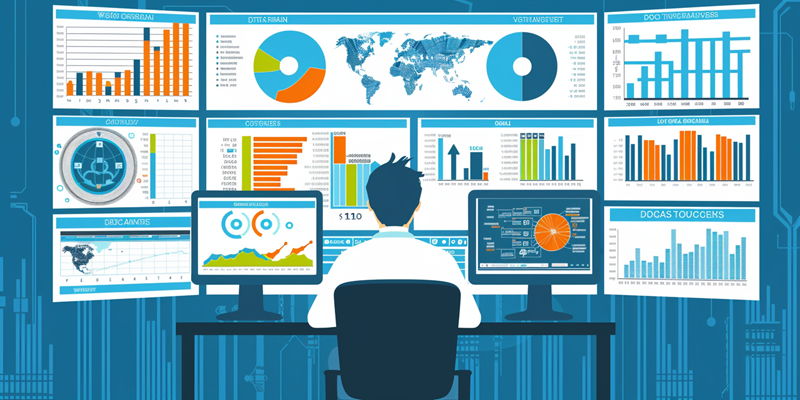In the bustling world of business, the capacity to predict the future can seem nothing short of sorcery. Yet, it’s data science – a rigorous intersection of statistics, computer science, and domain expertise – that casts the spells behind this modern magic known as predictive analytics. With its predictive prowess, data science leans heavily on past behavioral data to furnish businesses with a crystal ball aimed at foreseeing market trends, consumer habits, and potential risks. It’s a discipline that not only dissects historical information but also harnesses it to model what lies ahead, fueling strategies that are both proactive and prescient.
The Essence of Prediction
Predictive analytics doesn’t just guess; it calculates with precision. Utilizing advanced statistical methods and often integrating machine learning algorithms, data scientists can compose models that meticulously project future events. The complexity of predictive models can vary immensely – from straightforward sales forecasts based on seasonal trends to deep learning systems that adapt and refine their predictions over time. Tools for data processing and analysis are pivotal, as they churn through the vast repositories of big data, converting raw numbers into actionable insights. In essence, the efficiency of these predictive models is underpinned by the meticulousness of the data science that powers them. Across different sectors – finance, marketing, healthcare – these forecasts have been instrumental, determining everything from stock valuations to personalized customer outreach and public health strategies.
Success Stories and Strategic Decisions
The fast-paced realm of commerce often views foreseeing the future as a mystical art. However, the true wizardry at play is data science. This sophisticated blend of statistics, computer science, and sector-specific knowledge is the force behind predictive analytics. Thriving on the analysis of historical behavior, data science offers companies a glimpse into the future—granting them the power to anticipate market shifts, consumer patterns, and looming risks. This field meticulously studies past data and uses it to build models projecting what may come next, thus arming businesses with foresight, enabling them to craft strategies that are not only preemptive but also incredibly insightful. Data science transforms the past into a tool for molding a well-prepared future, essentially providing a data-driven crystal ball for the corporate world. The convergence of analysis and anticipation stands as a cornerstone of modern business acumen.

